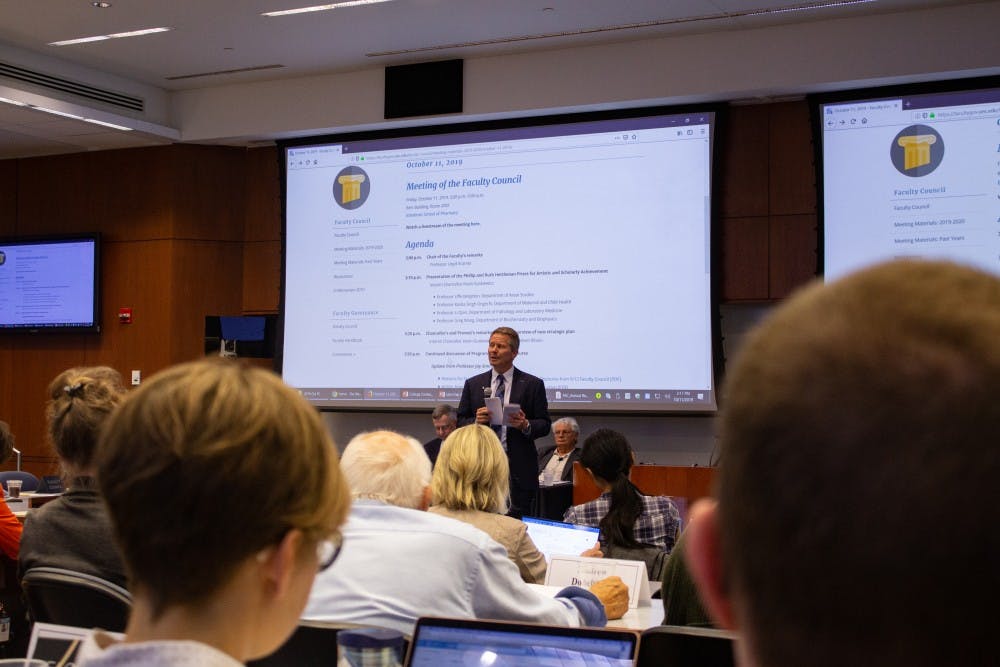The Faculty Council met in Kerr Hall on Friday to discuss an amended resolution regarding the Program for Public Discourse, a controversial program that some faculty have accused of having conservative influences. The proposed resolution was that the implementation of the program should be delayed pending a complete discussion of its structure and intentions.
After just over an hour of discussion, the council failed to pass the resolution to delay the implementation of the program.
The program will be housed within the College of Arts and Sciences. Its stated goal is to build the UNC community’s capacity for civil argument, discussion and conversation. The program will not have a major or minor of its own, but instead will link current and new courses in various departments with a thematic focus.
Typically, if a new program is developed within just one college of the University, there is not an extended discussion involving the entire Faculty Council, said Lloyd Kramer, chairperson of the faculty council.
However, Kramer said this particular program sparked an important conversation about academic freedom at the University, which is a matter that can be deliberated by the council.
“Everybody says they believe in academic freedom, but they have contrasting views on what this particular program means for their academic freedom,” Kramer said at the meeting.
Faculty members who oppose the program argue that having outsiders on the program’s advisory board and bringing in money from outside of the University to fund it threatens the academic freedom of the faculty involved, Kramer said.
Kramer said that, on the other hand, those who have been involved in the evolution of this program feel as though their academic freedom is under attack by the faculty who oppose the its creation.
Jay Smith, a professor in the history department who proposed the resolution, opposes the program as it stands because it appears to allow outsiders, undisclosed donors and non-UNC faculty to shape the curriculum.



